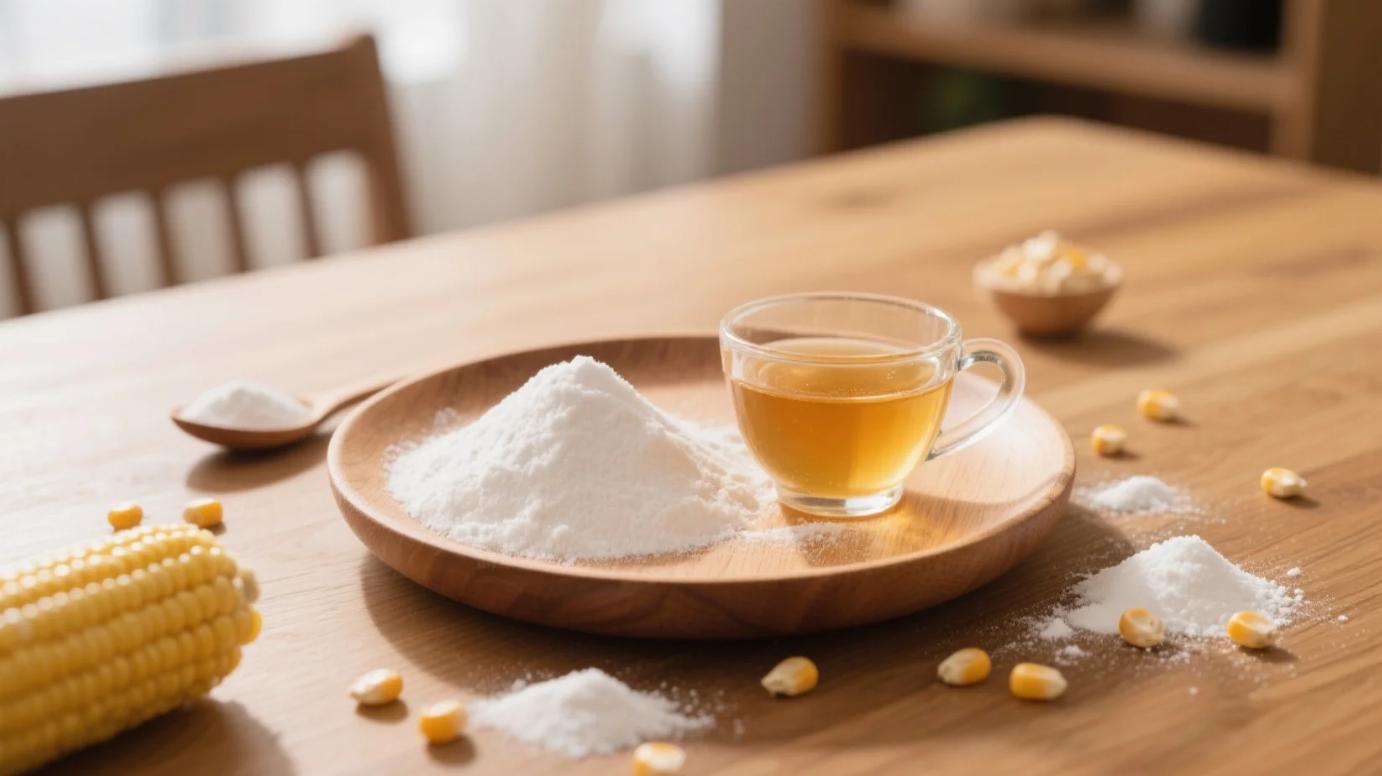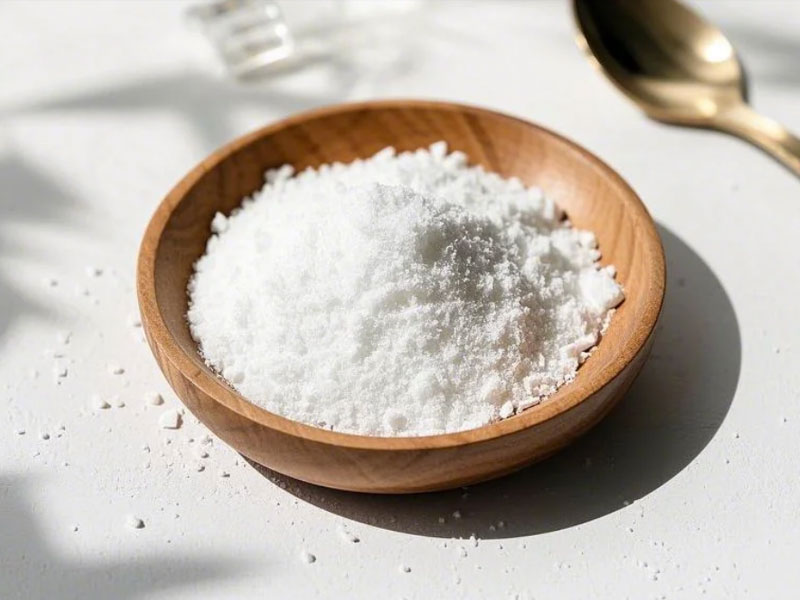The Liver Health Dilemma: Can a Sweetener Be an Ally?
As fatty liver disease rates skyrocket globally, consumers are scrutinizing sweeteners’ metabolic impacts. Organic allulose—a rare sugar naturally found in figs and raisins—has emerged as a promising alternative to fructose-laden sweeteners. But does it burden the liver like sucrose or high-fructose corn syrup (HFCS)? Let’s decode the science behind organic allulose syrup and powder, and their effects on hepatic health.

1. Allulose vs. Fructose: A Metabolic Showdown
The Fructose Problem
- HFCS & Sucrose: Fructose overloads the liver, driving de novo lipogenesis (fat production) and non-alcoholic fatty liver disease (NAFLD).
- Allulose’s Edge: Contains 0% fructose, bypassing this toxic pathway.
Liver Enzyme Benefits
- A 2022 Journal of Nutritional Biochemistry study found allulose:
- Reduces liver fat accumulation by 30% in high-fat diet models.
- Lowers ALT and AST enzymes (liver damage markers) by 20%.
- Enhances hepatic glycogen storage, improving energy metabolism.
Verdict: Allulose supports—not strains—the liver.
2. Organic Allulose Syrup & Powder: How They Protect the Liver
Syrup’s Role in Detox
- Antioxidant Synergy: Organic allulose syrup pairs with turmeric or milk thistle in functional shots, boosting glutathione (the liver’s master antioxidant).
- Alcohol Metabolism: Helps reduce acetaldehyde toxicity in mocktails, aiding hangover prevention.
Powder’s Metabolic Magic
- Fat Oxidation: Studies show 15g allulose powder pre-workout increases fat burning by 25%, easing the liver’s lipid-processing load.
- Insulin Sensitivity: Enhances hepatic insulin signaling, crucial for diabetics and NAFLD patients.
3. Organic Certification: Why Purity Matters
Conventional allulose may carry traces of GMO corn pesticides like atrazine, linked to liver inflammation. Organic certification ensures:
- Non-GMO Sourcing: Derived from regenerative corn farms, free from glyphosate and atrazine.
- Clean Enzymatic Processing: Avoids synthetic solvents that strain detox pathways.
- Eco-Impact: Organic corn uses 30% less water than sugarcane, reducing agricultural runoff harming aquatic life (and liver health).
4. Allulose vs. Common Sweeteners: Liver Impact Compared
| Sweetener | Fructose Content | Liver Fat Risk | Organic Allulose’s Advantage |
|---|---|---|---|
| High-Fructose Corn Syrup | 55% | High | 0% fructose, no lipogenesis |
| Honey | 40% | Moderate | Reduces liver enzymes |
| Erythritol | 0% | Neutral | Enhances glycogen storage |
| Agave Nectar | 85% | Very High | Supports detox pathways |
5. Safe Use Guidelines for Optimal Liver Health
- Daily Limit: Up to 30g (FDA recommendation) to avoid mild gastrointestinal effects.
- Synergistic Pairings: Combine allulose syrup with NAC (N-acetylcysteine) for glutathione boost.
- Medical Caution: Consult a doctor if using allulose powder with liver cirrhosis or advanced NAFLD.
6. Culinary Innovations: Liver-Loving Recipes
- Golden Milk Latte: Organic allulose syrup + turmeric + oat milk for anti-inflammatory support.
- Keto Fat Bombs: Powder blended with MCT oil and chlorella for sustained energy sans liver stress.
- Detox Smoothies: Syrup + beetroot + organic spirulina to aid hepatic detox.
7. The Future of Sweetener Science
- Clinical Trials: Ongoing NIH studies explore allulose’s role in reversing early-stage NAFLD.
- Carbon-Neutral Production: Brands like Ambrosia Bio use solar-powered enzymes, slashing CO₂ emissions by 40%.
Sweeten Without Sacrificing Your Liver
Organic allulose syrup and powder aren’t just sugar substitutes—they’re proactive allies for hepatic health. By sidestepping fructose’s pitfalls and embracing organic integrity, allulose delivers sweetness that respects your liver’s vital role.
Choose wisely. Thrive wholly.
Recommended Product
Organic Allulose Sweetener
Zero-Calorie, Natural Sweetener for Clean-Label Food, Beverage & Keto Formulations
